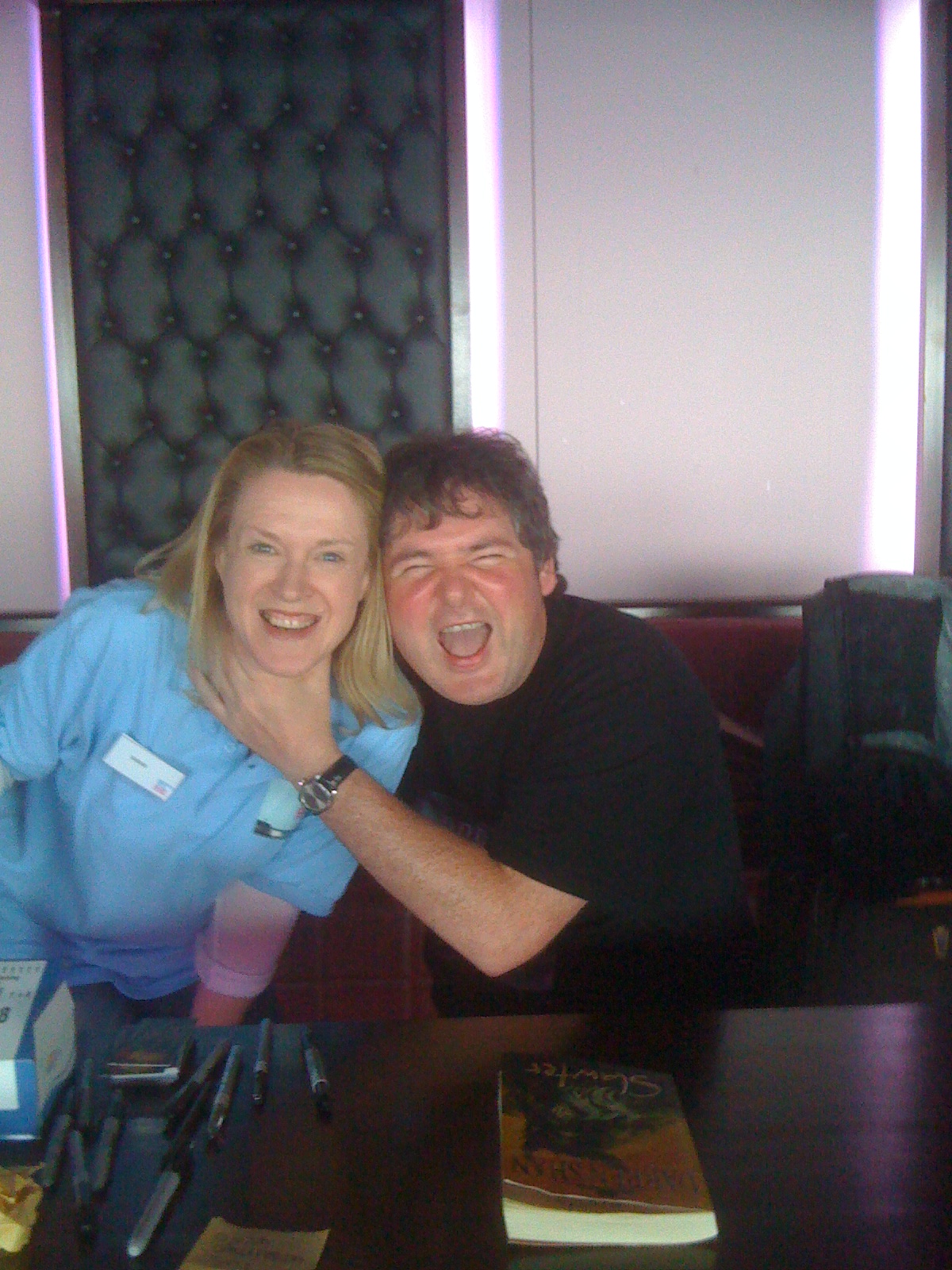Dear Writer, So your first book is coming out in 2012. First of all, congratulations! It’s a huge achievement. But no doubt you are rather nervous about what exactly is going to happen once your book is finally published.
Will it be available in Italy, America, Poland? How much will your publisher do to promote it and how much will I need to do? How does the whole publicity thing work? Do I wait to be asked to do things or do I make your own suggestions? Will my publishers get annoyed if I visit shops on my own? Should I move books around in the shop? Ask why my book is not in the window?
And these questions I’m sure are only the tip of your own personal book-related iceberg. And I will try to answer them honestly. If you have any other questions do ask in the comment box below.
Here goes - Let’s start at the beginning: What happens on publication day?
The honest answer is not much!
The pr person in your publishing house may have contacted you some time in advance of publication to talk about your media contacts (if you have any – don’t worry if you don’t). This may not happen. Many things I mention may not happen – but in an ideal world they will contact you and you will chat about media possibilities, local and, if you’re lucky, national.
So you may have a few things set up pre-publication, media wise pre publication. You may not. If nothing is planned – see my previous post on marketing and promoting your own book here.
Publication day will be a non event unless YOU celebrate it in some way. Walker Books send me a Happy Publication Day card, signed by the staff, Pan Macmillan send me flowers and their lovely Irish sales rep rings me to say congrats – but I do happen to have rather lovely publishers and I know this is unusual. I’m sure J K Rowling gets flowers, and chocolates, and champagne etc, but don’t expect anything at all and then you won’t be disappointed. Celebrate the day yourself. Go for lunch or dinner with friends or a loved one, go shopping, buy something special to remind you of the day.
What are ‘informal signings’?
About a week after publication your sales rep may take you on a tour of bookshops in your region to meet booksellers and do what’s called an ‘informal signing’. This means there will not be any readers there. Don’t expect people! You are there to meet the booksellers. It also gives them a heads up as to who you are and why they should bother hand selling your book (which is vitally important if you want your book to do well – readers trust booksellers).
Be lovely to the booksellers. They are amazing, dedicated, hard working people. I was a bookseller for many years (and will be again) and I can tell you that we remember the lovely writers and the horrible ones. If we like you, we will go out of our way to hand sell your book, simple as that! If we don’t . . . Oh and if you bake, bring muffins!
Never move your book into the window, or onto a better table or re-arrange the shelves. Booksellers notice these things! We spend all day working with the shelves and displays. Never, ever complain about your book not being in the window. If they are out of stock of your book, don’t scowl, be gracious.
Always let your publisher know that you’d like to visit a particular shop – they will ring the shop and let them know to have stock in to sign. It’s only polite to give them due warning, they are busy, busy people!
Will I be in the newspapers or on the radio?
In the first two weeks of publication (or in the case of magazines, several weeks before this), you may be asked to do some media interviews. Do these with good grace – even small local radio stations on an island off Kerry. If you feel uneasy about telling journalists your secrets – like what you really have for breakfast – make it up! You write fiction after all.
Your book is only new for a month (or two weeks in busy publication months), after that time the next set of ‘new’ books will push your book off the tables and onto the shelves. Make the most of ‘your’ month.
So what about foreign rights? When will my book be available in France, Spain and Poland?
If your publisher has bought world rights, they have the responsibility for selling these at book fairs and to other international publishers that they deal with. If you have an agent (and they have not sold world rights to the publishers), she or he is responsible for these rights. If your book is really, really good you will hear about rights pretty quickly. Otherwise it might take a while. Or you might not sell foreign rights at all. Not all my books have been translated. My first book, Kids Can Cook – a cookery book with mainly Irish recipes – is only available in Ireland for example. Don’t worry about it, maybe your next book will be snapped up by lots of different publishers worldwide. Focus on writing brilliant books and it will happen in time.
Will there be a book launch?
If your publishers are keen to have a launch and you like the idea, great. In the current climate, they may not be keen however. You may like to organize your own launch party, in a local bookshop. Or have a party at home to celebrate. If it’s your first book, absolutely have a launch! First books are very special indeed.
Will my book be reviewed?
It might be, but don’t hold your breath. I review books for Inis magazine and The Irish Independent, and so many great books never get reviewed because of space restrictions. And don’t worry too much about the bestsellers charts either, or the Amazon rankings. If your book is good, it will sell. People will buy it and read it. No book has ever had zero readers!
I feel so helpless. What can I do to help my book sell?
Lots! But make sure to talk to your publishers about it first. Here are some suggestions: A Blog Tour (if you have friends with blogs – if you don’t blog, start!) Join CBI (Children’s Books Ireland) and go to their events to meet fellow readers and writers – if you write for children Set up a Facebook page and hold a competition to win copies of your new book Hold a Twitter competition Write a piece for your local newspaper/school newsletter/parish times etc
Remember no-one cares as much about your book as you do! Do everything you can to promote it.
What if someone gives my book a horrible review on Amazon?
Read it, learn from it and then forget about it. If you want to write for a living you will get many, many reviews, learn to deal with criticism and also praise. There will be good reviews too, I promise.
Will I meet other authors?
Yes, if you attend readers’ days, conferences, and other writers’ launches (often your publisher will invite you to these). Having a writer friend, someone to talk shop with, someone who understands, is important. You could chat to other writers on Twitter – say hi to me for a start @sarahwebbishere – I promise I’ll tweet back!
Why does Derek Landy/Marian Keyes/John Connolly get all the attention and the bookshop space?
Simple answer – they writing amazing books that readers love. Write an amazing book and you’ll get the same attention!
What if my book doesn’t set the world on fire?
Write another one. And keep repeating until you write one that does!
I'd love to tell you that it gets easier, but it doesn't - sorry! OK, maybe it does a little, as long as you know in your heart that you've written the best book you can, you don't worry so much about reviews and things that you can't control. And it is all worth it, honest!
Good luck!
Yours in writing,
Sarah XXX











